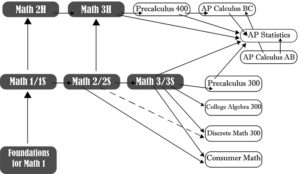Tracking denies all students an equal opportunity to succeed.
Tatum Mitchell
January 25, 2019
Tracking is the practice of classifying students based on academic capability. The process of tracking classes before high school can limit students in their ability to succeed and advance. I am not against more challenging courses in high school; however, I do not believe lower-level tracking is beneficial to students.
As a 10-year-old going into 5th grade, I received a letter in the mail telling me I was a “gifted” child and would be placed in an advanced class for the coming school year. While I realize the curriculum in 5th grade is not as challenging as junior high or high school, with these high expectations set for me, I aimed to fit the standards of being a “gifted student.” Students tend to strive for the expectations that are set for them, whether that be overachieving or underachieving.
In professor Mike Rose’s “Lives on the Boundary,” he wrote about his experience in school. Upon his enrollment at Our Lady of Mercy, his (above average) test scores were mistaken with another person’s below average scores. Rose was placed in classes that were below his level of comprehension.
“Students will float to the mark you set. I and the others in the vocational classes were bobbing in pretty shallow water,” Rose said.
While Rose’s test scores proved him to be an “above average” student, being placed in lower classes did not help him. Rose did not succeed his other classmates, he struggled along with the rest of the class. Even though Rose was an above average student, the class level he was placed in affected his performance.
In most cases students are put into honors or regular classes at an early age, effectively assigning a role to a given student early on and making it difficult to change levels of classes.
While tracking may be beneficial for students placed in honors or AP classes, those in lower level classes are given the label of not being as smart or being a “regular” student. These separations occur as early as elementary school, dividing children based on how they scored on a handful of tests.
Honors students usually stay in honors/AP classes and regular level students stay in regular classes. Tracking should not be put in place so early in a student’s life. There should be options for students in high school to take different levels of classes, but not any sooner than high school.
At the beginning of one’s education, the challenges and availability of support given should be equal to every student, as to avoid labeling and placing children into boxes based on their perceived academic capabilities. In high school, I support challenging courses and high-level classes in order to receive college credit. Although I believe the issue of underachieving students and overworked honors kids stems from the labels of capacity given to students at an early age.
Instead of separating students out into lower or higher levels, all classes should offer the same amount of support. An example of this would be extra time, tutors, and other education support tools. All classes prior to high school education should have the same curriculum.
This gives all students the equal opportunity to succeed and does not assign students to roles based on capability so early in their educational careers.






